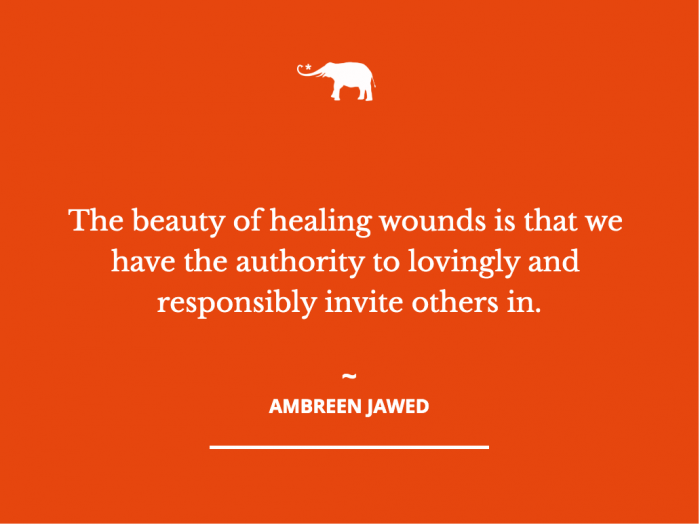View this post on Instagram
There is a certain type of trauma that has an unusual familiarity with people from other ethnic minorities and runs deep within these communities.
Trauma is in our bones. We have been rejected from our inherent right as a collective from our motherlands in the historical attempt to recentre colonialism, imperialism, and racism.
Having this met with amnesia in European politics, where historical contextualisation of these key events is missing, has created a toxic narrative of “us” and “them.” Why am I speaking about this? Because our ancestors have endured this trauma, leading to generations of good people with good souls forced to wear armour and survive in a hostile society.
Hence, the childhood trauma we have experienced is historically engrained in our bones, and those who inflicted pain on us were surviving from also being in pain.
We are all guilty of being caught up in this vicious cycle of receiving and inflicting pain at some point in our life, or even multiple points.
The scarcity of love that runs in our community is so deeply traumatic to the human spirit, no matter how resilient we have been conditioned to be. But why is it so important to be loved? To be understood. To be seen.
It is in our innate basic human need—in our basic spiritual need—to be loved. The physical entity of the human being seen and loved is not enough; it will never be enough. Our spirit needs to be seen, hence why these qualities form such a huge part of our survival in this world.
We live in a society today where this basic need has become a desire—an unachievable goal. We avoid the truth of this distortion because it is hard to admit that we are deeply hurt in life. Instead, we compensate for this need by making our careers and lifestyle measures of happiness. How we look, how many friends we have, the number of trophies we receive in our hobbies, or the merits of excellence in high achieving spaces sadly become the rebound to the love we never received. It’s there to fill the void, but it’s not enough.
The truth is, we have not known love. Since we have graced this earth, many of us have fallen in to performative and conditioned spaces to attain “love.” Quite simply:
Receiving attention based on performance is not love.
Receiving validation in an environment where we have been conditioned to be more aware of the pain of our families than the celebration of our own hearts and what it desires is not love.
It is in these spaces that our distorted ideas of love face us directly in the eye, and we find ourselves deeply unsatisfied and unhappy with life.
How do we overcome the distorted idea of love we have all grown up to believe in? I think the real question is, “When have we sat down and grieved for ourselves?”
I have come to realise through recent insights that freedom from these wounds lies in being able to grieve for ourselves what we have never received. The inability to grieve, whether it is an emotional block or being seen as “weak” or “victim mentality” is not reason enough to not take this step. Grieving for ourselves from times and places where there was no love is the only way to free our nervous system of what we thought was love.
We all have shadows that are only exposed when interrupted by light, whether this interruption comes in the form of an experience, a friend, or a lover. Keep these interruptions close to your heart because it is these interruptions that have enabled you to see the shadows that exist within you—a mirror to your soul. When faced with the shadows, we literally experience an intense, Earth-shattering realization of the self.
And within this shattering of all that ever was, is, and will be, comes surfacing of old wounds that open the light for healing.
The surfacing of these wounds can be internally numbing, physically paralyzing and disabling in every aspect of our life as they keep resurfacing evermore harshly, slowly bleeding in to all the spaces of our life, our relationships, and our career, until we cannot ignore them anymore.
It is natural to stare in shock; it is natural to pretend it is not there; it is natural to run around screaming, trying to find a culprit for the wound, and even fire ammunition to anything and everything that comes into our focus. But the repetition of this behaviour can be extremely destroying for the soul and toxic for ourselves and the spaces/people around us.
Blaming others becomes an avenue of temporary reasoning to make sense of it all. It is at this point where a decision needs to be made. Are we going to wake up every day screaming in agony from the same wound, ready ourselves for war to shoot everything in our focus, only to wake up the next day and relive the same wound as if it is the first time we are experiencing it? Or are we going to process this wound, sit with it, and gather whatever it is we need to actively heal it?
Because the process of healing can only come from within.
The beauty of healing wounds is that we have the authority to lovingly and responsibly invite others in. Inviting others to simply give love to this place whilst we take the time to grieve the first worldly love that never was.
In writing this today, there is a sense of accountability to myself that I, too, will share my wounds responsibly and with love.
I, too, will break the repetition of experiencing the same wound as new and invite loved ones responsibly.
Peace be with you on yours, mine, and our journey of healing.
~


 Share on bsky
Share on bsky





Read 0 comments and reply